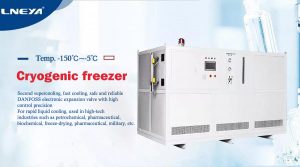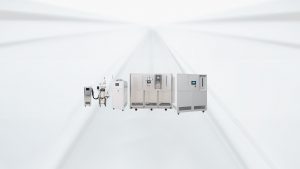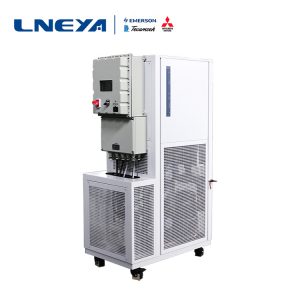Thermische Reaktorkontrolleinheit und Lösungen für Chemikalien
Temperaturkontrolle ist ein Prozess, bei dem die Temperatur einer Substanz oder eine Temperaturänderung gemessen oder anderweitig erfasst wird und die Übertragung von Wärmeenergie in oder aus dem Raum oder der Substanz eingestellt wird, um die gewünschte Temperatur zu erreichen...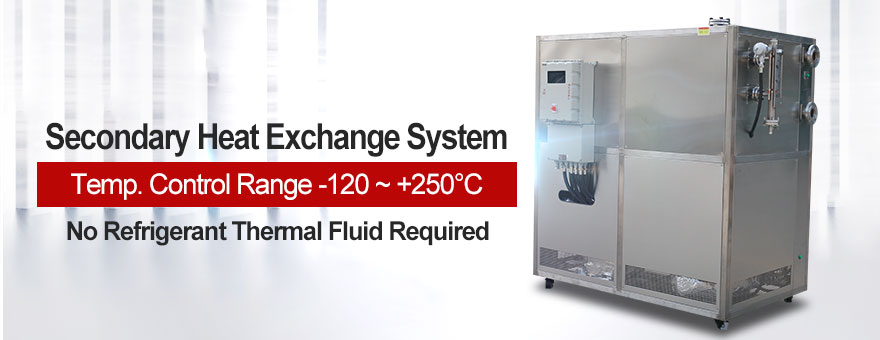
When dealing with pharmaceutical production, maintaining accurate temperature control is critical. Starting with research throughout production, precise temperature control is required at every stage of the process. We fully understand the importance of process cooling, and simple temperature fluctuations (positive and negative) can ruin research or production.
Our TCU can meet all your heating, cooling and temperature control needs for your chemical or pharmaceutical reactor. The LNEYA-TCU temperature control system can utilize existing thermal energy (such as steam, cooling water and ultra-low temperature liquids-the “primary system”) infrastructure integration to achieve dynamic temperature control of the equipment temperature in a single fluid system or a secondary circuit. This only completes the flow of a heat transfer liquid into the jacket of the reaction vessel (rather than directly into the steam, cooling water or cryogenic liquid), and the temperature of the entire reaction process is controlled by calculation.
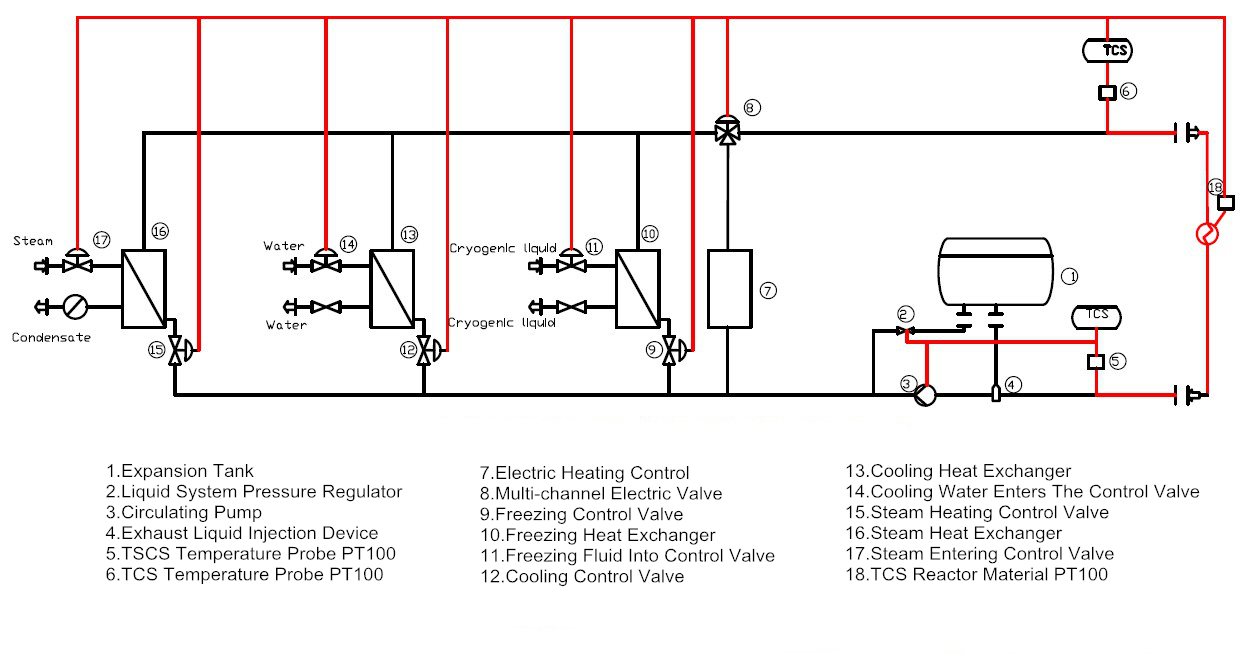
From -120°C for cryogenic pharmaceutical applications to 300°C for chemical applications, the maximum temperature can be set according to the supplier’s heating or cooling source. The maximum temperature range can be set using a glycol water formula. Through three-point sampling (material temperature point, outlet temperature of temperature control system, inlet temperature of temperature control system), and our own model-free self-building algorithm and general anti-lag cascade algorithm, the problem of large drug delays is solved. Chemical temperature control . Our SR series and ZLF series are completely suitable for low temperature reaction, synthesis, separation process, pilot plant, reactor system, autoclave, combinatorial chemistry, etc.
This will increase product profitability and reactor utilization, and reduce energy and plant operating costs. Our TCU is fully automated and easy to operate. The temperature control accuracy of the product is ± 0.5 ° C, and the cooling power can be provided from 0.5 kW to 1200 kW.
The picture below shows the TCU thermal control unit customized by domestic customers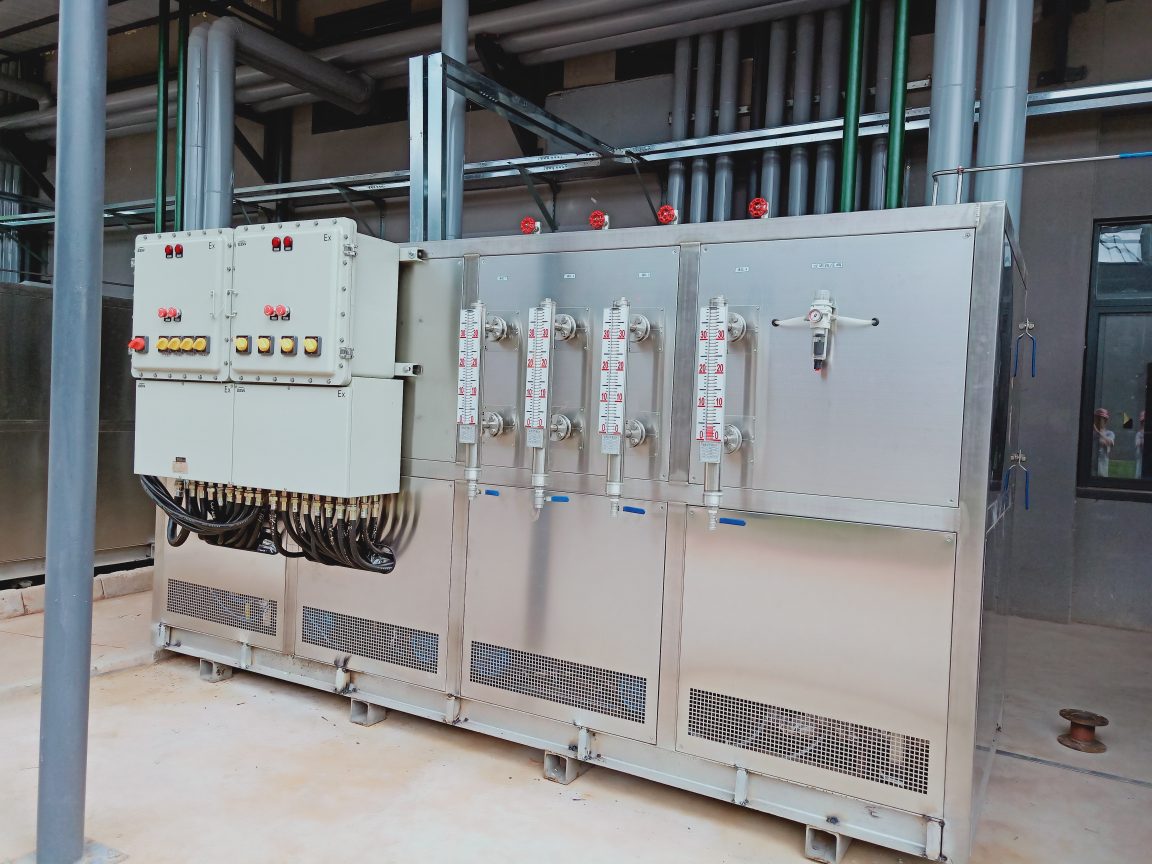
Verwandte Empfehlungen
-
Analytical description of accessories used in low temperature chiller
856The low temperature chiller still uses a larger amount of cooling water equipment in our usual refrigeration equipment. When using it, you must first understand the principle of the low-temperature chiller and various accessories to better operate...
Details anzeigen -
Configuration form of circulating heating unit for laboratory
931The standard model of the circulating heating unit for LNEYA laboratory is: SUNDI, the temperature range is from room temperature to minus 120 degrees Celsius, and the capacity can be divided into 5L, 10L, 20L, 30L, 40L, 50L, 80L, 100L, larger cap...
Details anzeigen -
What are the conditions for the decarboxylation reaction? How to control the temperature of heating?
1185Die Decarboxylierung von aromatischen Säuren ist einfacher als die von Fettsäuren. Zum Beispiel kann Benzoesäure durch Zugabe von etwas Kupferpulver als Katalysator in Chinolinlösung und Erhitzen decarboxyliert werden. Wenn eine starke elektronenziehende Gruppe ...
Details anzeigen -
How To Choose The Equipment For The Reactor?
860The choice of equipment for the reactor needs to be measured by the following points: 1. Heating method: Generally, the electric heating should be greater than or equal to 3 tons, and in the case of the outer half pipe; less than or equal to 3 to...
Details anzeigen
 LNEYA Industriekühler Hersteller Lieferant
LNEYA Industriekühler Hersteller Lieferant









